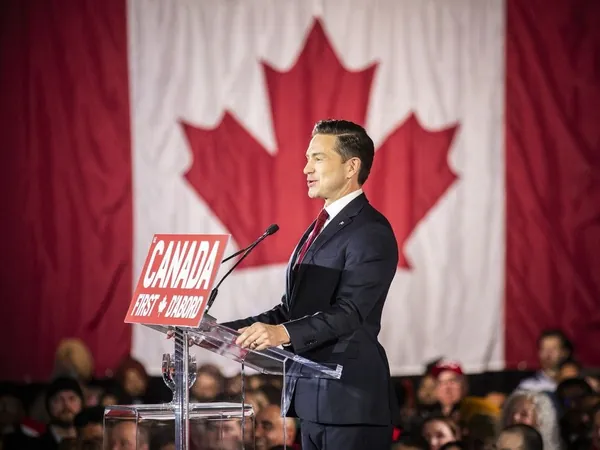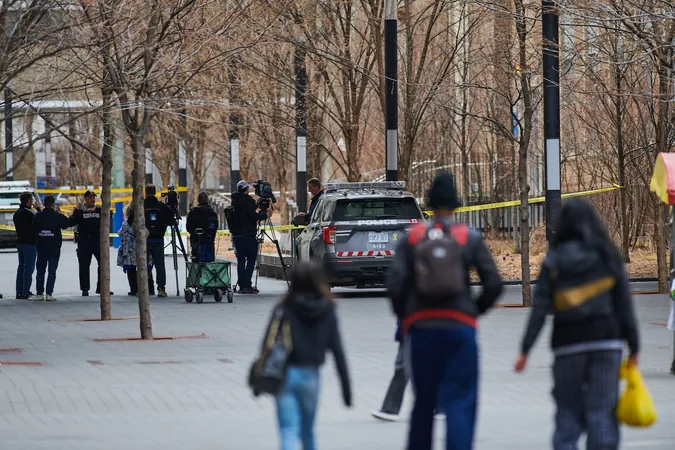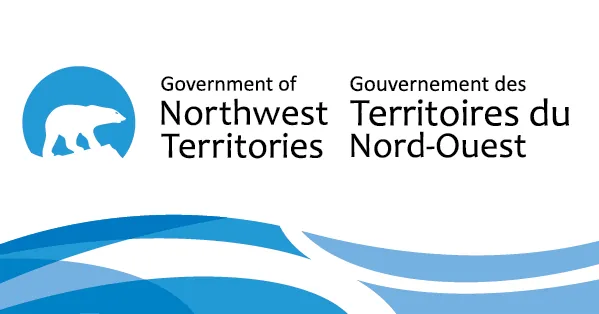
Pierre Poilievre Faces Unprecedented Competition with 56 Candidates on Ballot in Carleton Riding
2025-04-07
Author: Amelia
In a surprising twist for the upcoming federal election, the Carleton riding has become a bustling hub of political activity, now featuring an astonishing 56 candidates vying for voter support. This surge of candidates, which has emerged just hours before the registration deadline, is set to complicate voting procedures and could significantly delay election results in one of Canada’s most scrutinized electoral districts.
Elections Canada has announced it is considering measures to expedite the counting process on election night, including possibly allowing advance poll votes to be tallied ahead of schedule. To assist with the anticipated challenges, additional counting teams may be brought in, alongside enhanced training for personnel familiarizing themselves with an unusually large ballot.
Among the influx of candidates, a majority are independents, all represented by Tomas Szuchewycz, an advocate associated with the Longest Ballot Committee. This group, known for its unconventional strategies, aims to draw attention to the flaws of the first-past-the-post electoral system by flooding ballots in protest. In an email, Szuchewycz noted, “Yes, the Longest Ballot Committee is responsible for the numerous candidates now registered. There are many more to come.”
Historically linked with the Rhinoceros Party, the Longest Ballot Committee seeks to highlight what they perceive as a conflict of interest when politicians regulate their own election rules. They advocate for a permanent and independent body to oversee electoral regulations, asserting that no politician would willingly change a system that benefits them.
Before this sudden influx, the ballot featured five candidates including Conservative leader Pierre Poilievre, who has held his position since 2004, alongside Liberal challenger Bruce Fanjoy, NDP candidate Beth Prokaska, and Green Party’s Mark Watson. Poilievre's seat is now under scrutiny as political dynamics shift, particularly following the resignation of former Prime Minister Justin Trudeau and escalating pressures from the U.S. political landscape.
In response to the Longest Ballot initiative, some political scientists have questioned its efficacy. Lori Tiurnbull, a political science professor, states, “There is no logical connection between flooding a ballot and addressing the ills of first-past-the-post. While their actions aim to demonstrate the weaknesses in our democratic system, they inadvertently showcase the integrity of it.”
The act of inundating the ballot raises concerns about accessibility, especially for voters with disabilities, and several critics argue that this could be seen as a suppression tactic. Nevertheless, Fanjoy's campaign remains optimistic that his proactive door-to-door engagement will mitigate any negative effects caused by the ballot's crowded nature.
As Carleton prepares for this extraordinary election scenario, all eyes will be on the ballot count as longer wait times may test the patience and resolve of voters—potentially changing the landscape of Canadian politics in unforeseen ways. Voters are left to wonder if this "democratic experiment" will reshape election strategies in future races.









 Brasil (PT)
Brasil (PT)
 Canada (EN)
Canada (EN)
 Chile (ES)
Chile (ES)
 Česko (CS)
Česko (CS)
 대한민국 (KO)
대한민국 (KO)
 España (ES)
España (ES)
 France (FR)
France (FR)
 Hong Kong (EN)
Hong Kong (EN)
 Italia (IT)
Italia (IT)
 日本 (JA)
日本 (JA)
 Magyarország (HU)
Magyarország (HU)
 Norge (NO)
Norge (NO)
 Polska (PL)
Polska (PL)
 Schweiz (DE)
Schweiz (DE)
 Singapore (EN)
Singapore (EN)
 Sverige (SV)
Sverige (SV)
 Suomi (FI)
Suomi (FI)
 Türkiye (TR)
Türkiye (TR)
 الإمارات العربية المتحدة (AR)
الإمارات العربية المتحدة (AR)